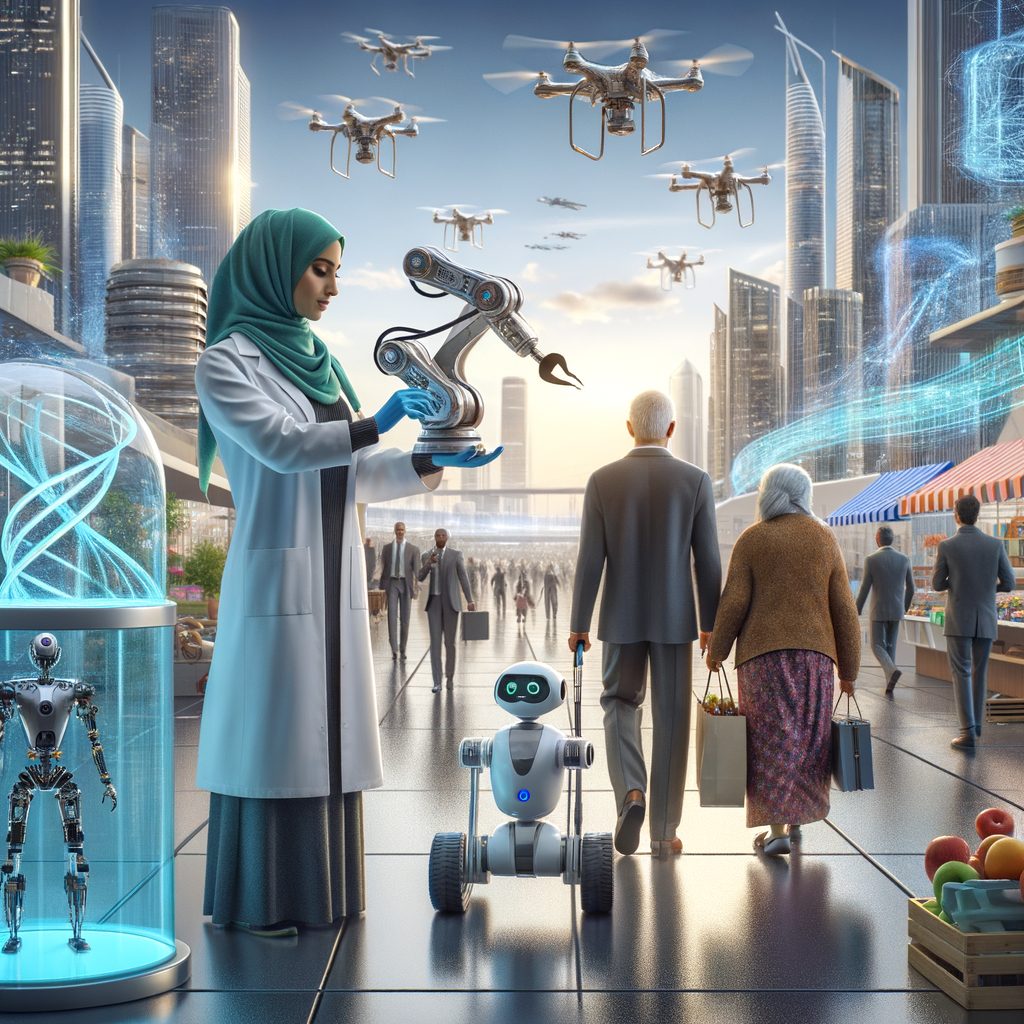Physical Address
304 North Cardinal St.
Dorchester Center, MA 02124
Physical Address
304 North Cardinal St.
Dorchester Center, MA 02124

The advent of robotics has dramatically transformed the modern world, impacting various sectors including healthcare, manufacturing, transport and logistics, education, and even our personal lives. The integration of robotics into society has not only enhanced efficiency but also opened up new opportunities for innovation and economic growth. This article aims to delve into the role of robotics in modern society.
In the healthcare sector, robots have become instrumental in improving patient care and outcomes. Surgical robots such as the da Vinci Surgical System are used by surgeons to perform complex procedures with greater precision and minimal invasiveness. These robots offer high-definition 3D vision and an extended range of motion that surpasses human capabilities.
Robots are also being utilised for patient rehabilitation. Robotic exoskeletons assist patients with mobility impairments or those recovering from a stroke or spinal cord injury to regain their independence.
The manufacturing industry was one of the first sectors to adopt robotics on a large scale. Industrial robots have revolutionised assembly lines, leading to increased productivity, improved product quality, reduced waste and safer working conditions. They can work tirelessly around the clock without succumbing to fatigue or boredom.
New-generation collaborative robots (cobots) are designed to work alongside humans rather than replace them. Cobots can carry out repetitive tasks while humans focus on more complex problem-solving activities.
Robotics plays a crucial role in transportation and logistics as well. Autonomous vehicles like self-driving cars use advanced robotic technology combined with artificial intelligence (AI) algorithms for navigation. In logistics centres, robotic systems automate tasks such as sorting parcels or picking items from shelves which significantly reduces processing time and minimises errors.
In the field of education, robotics is being used to facilitate interactive learning and inspire interest in science, technology, engineering, and mathematics (STEM) subjects. Students can build and program robots, fostering critical thinking, problem-solving skills and creativity. Robotics competitions such as First Lego League provide a platform for students to showcase their skills and learn teamwork.
The influence of robotics extends into our personal lives as well. Domestic robots like Roomba vacuum cleaners or lawn-mowing robots help with household chores. Personal assistant robots equipped with AI can schedule appointments, play music or even control smart home devices.
The future holds immense potential for robotics. As technology advances, we can expect more sophisticated robots capable of performing complex tasks with greater autonomy. For instance, the development of humanoid robots that can interact naturally with humans could revolutionise sectors like eldercare or customer service.
However, the rise of robotics also brings challenges such as job displacement due to automation and ethical concerns regarding robot autonomy and decision-making. As society continues to integrate more robotic technology into daily life, it will be crucial to address these issues through policies that promote responsible use of robotics and ensure benefits are shared broadly across society.
In summary, robotics plays a vital role in modern society by improving efficiency in various sectors, creating new opportunities for innovation and economic growth while also presenting challenges that need careful consideration. The way we harness this powerful technology will shape the future of our societies.